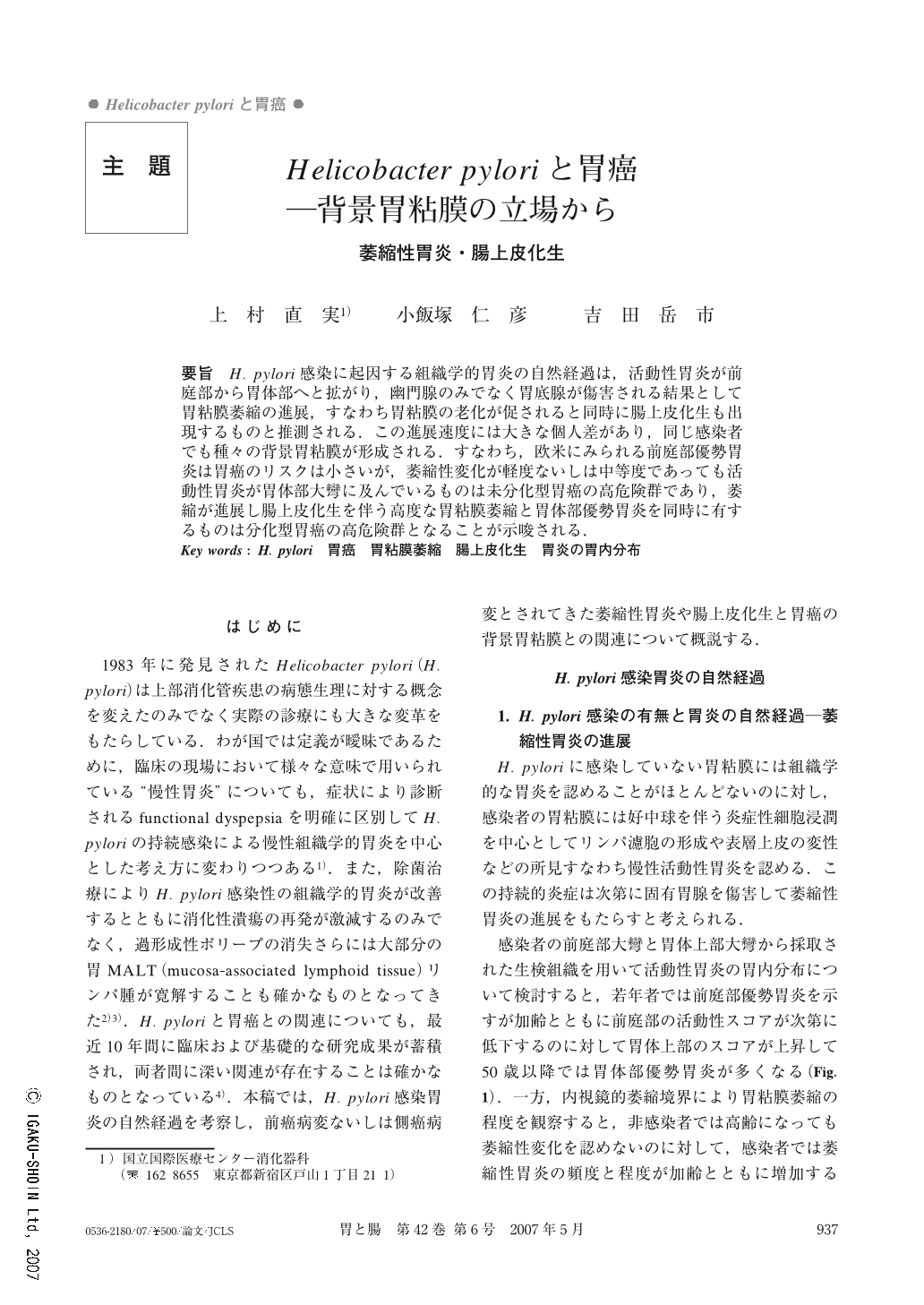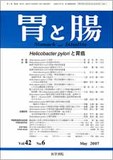Japanese
English
- 有料閲覧
- Abstract 文献概要
- 1ページ目 Look Inside
- 参考文献 Reference
- サイト内被引用 Cited by
要旨 H. pylori感染に起因する組織学的胃炎の自然経過は,活動性胃炎が前庭部から胃体部へと拡がり,幽門腺のみでなく胃底腺が傷害される結果として胃粘膜萎縮の進展,すなわち胃粘膜の老化が促されると同時に腸上皮化生も出現するものと推測される.この進展速度には大きな個人差があり,同じ感染者でも種々の背景胃粘膜が形成される.すなわち,欧米にみられる前庭部優勢胃炎は胃癌のリスクは小さいが,萎縮性変化が軽度ないしは中等度であっても活動性胃炎が胃体部大彎に及んでいるものは未分化型胃癌の高危険群であり,萎縮が進展し腸上皮化生を伴う高度な胃粘膜萎縮と胃体部優勢胃炎を同時に有するものは分化型胃癌の高危険群となることが示唆される.
As for the natural history of histological gastritis caused by H. pylori infection, active gastritis expands from the antrum to the body of the stomach. As a result of the fundic gland being damaged as well as the pyloric gland, intestinal metaplasia will develop at the same time as the development of atrophic gastritis, which is really the aging of the gastric mucosa, is promoted. This development rate differs greatly according to individuals, and various kinds of background gastric mucosa are caused in similarly infected subjects. Antrum predominant gastritis found in the West has a small risk of becoming gastric cancer. But, on the other hand, the gastric mucosa that extends with active gastritis to the greater curvature of the upper body is high risk facter for diffuse type of gastric cancer though it produces only minor atrophic changes. Moreover, advanced atrophy of gastric mucosa and corpus predominant gastritis with intestinal metaplasia are high risk facters for intestinal-type gastric cancer.

Copyright © 2007, Igaku-Shoin Ltd. All rights reserved.


